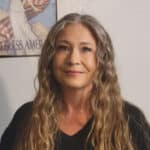
A Dutch Canadian man developed severe heart failure and now requires a heart transplant, shortly after receiving Pfizer’s experimental COVID-19 mRNA vaccine booster in order to enter Canada to see his children.
54-year-old Alex van Kooten developed a case of myocarditis so severe it calcified his aortic valve following the booster shot. He is now on a waiting list for a heart transplant, surviving with the aid of a Left Ventricular Assist Device… a life support machine that pumps his blood via a tube.
Prior to receiving the booster shot that caused his heart to fail, Van Kooten was an otherwise extremely healthy and fit 52-year-old man.
Shortly after receiving the booster in May of 2021, Van Kooten began experiencing heart palpitations and shortness of breath.
Van Kooten and his wife moved to Aruba in 2017. When the pandemic was declared and worldwide lockdowns began at the beginning of 2020, Aruba became impossible to leave.
After two years of being trapped on the island without seeing their children, the only option they had to travel to Canada was to get vaccinated… and then boosted for COVID-19.

“I wanted to see my children in a bad way after two years…That’s not a fun thing,” he said.
Alex continued, “You know, I’m feeling like we were trapped. It sounds like you’re in paradise where you’re invited, but trust me, you feel trapped [in Aruba], even though it’s sunny every day.”
Vision Times reported (excerpt):
A Dutch-Canadian man developed severe heart failure and now requires a heart transplant, a condition which developed shortly after taking the booster shot of Pfizer’s Coronavirus Disease 2019 (COVID-19) mRNA gene therapy vaccine in order to meet pandemic era travel requirements to enter Canada to see his children.
Before heart failure changed his life forever, Alex van Kooten was an otherwise extremely healthy and fit 52-year-old who frequently enjoyed sports and leisure activities, such as skiing, bicycle racing, and kite surfing.
Alex, who was born in the Netherlands, immigrated to Canada with his parents at the age of 9, spending most of his life in the Toronto and London regions of Ontario before relocating to the Caribbean after completing his professional career.
Once a corporate salesperson and sales manager for companies such as Hilti and Black & Decker, Alex and his wife decided it was time for a change and moved to Aruba to manage property in 2017.
…
Seemingly overnight, Aruba had transformed from a sunny island paradise into a 180 square kilometer waiting area.
“I had worked very hard in my life at an early age, and decided to semi-retire,” Alex told Vision Times. “That’s why we moved to Aruba to enjoy the weather, and then COVID hit, and needless to say that we were kind of stuck.”
Alex continued, “And we’re hoping, obviously, that things would go better. We had our own little business there with vacation homes, and of course with the lockdowns, that didn’t go very well.”
“And then finally, after two years of not seeing the children, the only option we had to see the children was to get vaccinated in order to get back into Canada,” he added.
But plans to return home to visit with their adult children proved difficult to arrange. At the end of January of 2021, the Government of Canada declared it was suspending travel from Caribbean countries, effective until the end of April.
Mandatory quarantine on arrival in a first world country was before then effectively unprecedented. And as vaccine passports began trending in a number of countries around the world, Alex started to feel that the writing was on the wall and it was only a matter of time until his wish to return to Canada to see family would be predicated on getting vaccinated.
“I wanted to see my children in a bad way after two years…That’s not a fun thing,” he said.
Alex continued, “You know, I’m feeling like we were trapped. It sounds like you’re in paradise where you’re invited, but trust me, you feel trapped [in Aruba], even though it’s sunny every day.”
Alex told Vision Times that he had reservations about both the vaccines and the risk of serious illness from COVID for people as healthy as he was, “I was very reluctant. I’m not an anti-vaxxer, but I’ve always been against the flu shot. And this [COVID], to me, was always a flu,” he said.
“And it didn’t make a lot of sense for healthy people, which I was extremely healthy, to get a vaccine for something that maybe would make me sick for a few days,” Alex added.
“Not knowing when you could resume a normal life…You feel pressured in doing so [getting vaccinated],” Alex said. “I could have waited for another two years, and then [he felt like] maybe I would have been able to see my children after four or five years if they ever removed restrictions. But there’s no guarantee of that,” he added.
So he rolled up his sleeve for the first dose of the Pfizer-BioNTech COVID-19 vaccine in March of 2021 in anticipation of Canada’s Caribbean restrictions being lifted.
And the appointment came and went without any issue, “After the first injection, it just had a bit of a sore arm. I didn’t make a big deal of it,” he said.
But when Alex took the second course of the vaccine required for fully vaccinated status in May of 2021 right before leaving for a trip to Holland, shortly after they had arrived, he immediately began to notice something was wrong.
Heart palpitations and a shortness of breath were the first troubles he experienced, “And two, three days after I arrived in Holland, we go for our first walk. We took our dogs…and I had to tell my wife to slow down because I was out of breath,” he said.
Alex explained the issue was exceptionally prominent for him, since as part of his exercise routine, Alex liked to traverse the Hooiberg hiking trail in Aruba, which involves a 2,500 step climb across a concrete staircase to the top of Mount Hooiberg, a path he had long since mastered.
“At first, I didn’t think much of it, but then [the symptoms] were just on an ongoing basis,” he added.
When the palpitations and breathing issues did not abate, Alex’s doctors in the Netherlands sent him for an EKG. But when the test came back clean, he was told what he was experiencing was psychological and probably only stress related.
“So I lived with this for almost six months. Went back to Aruba, went to the doctor there a few more times because of the issues, same scenario,” he added.



